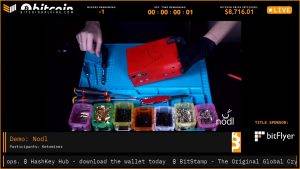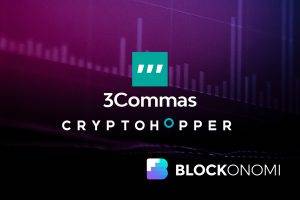Blockchain technology has the potential to revolutionize the way we interact with social media. Social media platforms have become an integral part of our daily lives, but they are also centralized and controlled by a few powerful corporations. Blockchain technology provides a solution to this problem by offering a decentralized platform that allows users to take control of their data and participate in a more democratic social network. In this blog post, we will discuss the potential of blockchain for decentralized social media platforms.
Decentralization and blockchain
Decentralization is a key concept in blockchain technology. It refers to the distribution of data across a network of computers, which allows for greater transparency, security, and control. Decentralized systems operate without a central authority or control point, and instead rely on a distributed consensus mechanism to verify transactions and maintain the integrity of the network.
Blockchain technology is the underlying technology that enables decentralized systems. It is a decentralized ledger that records transactions across a network of computers in a secure and transparent way. Each block in the chain contains a cryptographic hash of the previous block, which makes it tamper-proof and immutable.
Blockchain and social media
Social media platforms are centralized systems that collect vast amounts of user data, which is then monetized through advertising and other means. This centralized model has many drawbacks, including lack of privacy, censorship, and control over data. Blockchain technology can offer a decentralized alternative that provides users with greater control over their data and the ability to participate in a more democratic social network.
Blockchain-based social media platforms operate on a distributed network of computers that allows for greater transparency, security, and control. Users can create, share, and interact with content without fear of censorship or data mining. This decentralized model also allows for greater community participation in the governance and decision-making processes of the platform.
Tokenization and incentivization
Tokenization is another key concept in blockchain technology. It refers to the creation of digital tokens that represent assets or value on a blockchain network. These tokens can be used to incentivize users to contribute to the network, and can also be used as a means of exchange within the network.
In a decentralized social media platform, tokens can be used to incentivize users to contribute valuable content and engage with the community. Users can earn tokens for creating and sharing content, and for participating in the governance and decision-making processes of the platform. This incentivization model can help to create a more engaged and active community, and can also provide a means of monetization for content creators.
Privacy and security
Privacy and security are key concerns for social media users. Centralized social media platforms collect vast amounts of user data, which can be vulnerable to hacking and other security breaches. Blockchain-based social media platforms offer a more secure and private alternative, as user data is distributed across a network of computers and protected by strong cryptography.
Blockchain technology can also provide users with greater control over their data. Users can decide what data they want to share and with whom, and can revoke access to their data at any time. This level of control is not possible with centralized social media platforms, where user data is controlled by the platform.
Challenges and limitations
While blockchain technology offers many benefits for decentralized social media platforms, there are also challenges and limitations that must be addressed. One of the biggest challenges is scalability, as blockchain networks can become slow and inefficient as they grow in size. This can make it difficult to create a social media platform that can compete with centralized platforms in terms of speed and user experience.
Another challenge is adoption, as blockchain technology is still relatively new and not yet widely understood by the general public. To create a successful decentralized social media platform, it will be important to educate users about the benefits of blockchain technology and provide a user-friendly interface that is accessible to everyone.
Blockchain technology has the potential to revolutionize the way we interact
with specific examples of existing decentralized social media platforms.
There are already several existing decentralized social media platforms that are leveraging blockchain technology to create a more democratic and user-controlled social network. Here are a few examples:
Steemit
Steemit is a blockchain-based social media platform that allows users to create and share content and earn cryptocurrency for their contributions. The platform operates on the Steem blockchain and uses a proof-of-brain consensus mechanism to reward users for creating and sharing valuable content. Steemit also allows users to vote on content and allocate rewards to other users, creating a more democratic and community-driven platform.
Minds
Minds is another decentralized social media platform that operates on a blockchain-based infrastructure. The platform allows users to create and share content and earn tokens for their contributions. Minds also includes features such as encrypted messaging, privacy controls, and user-controlled feeds. The platform is designed to be transparent and open-source, allowing users to participate in the development and governance of the platform.
Peepeth
Peepeth is a decentralized social network that operates on the Ethereum blockchain. The platform allows users to post short messages (similar to Twitter) and earn tokens for their contributions. Peepeth emphasizes privacy and data ownership, allowing users to control their data and choose what they share with others. The platform also includes features such as message encryption and user-controlled feeds.
Mastodon
Mastodon is a decentralized social network that operates on a federated model. Unlike other blockchain-based platforms, Mastodon does not use a blockchain but instead relies on a network of independently operated servers. The platform allows users to create and share content and connect with other users on a variety of servers. Mastodon is designed to be community-driven and provides users with more control over their data and privacy.
DTube
DTube is a decentralized video-sharing platform that operates on the Steem blockchain. The platform allows users to upload and share videos and earn cryptocurrency for their contributions. DTube also emphasizes privacy and data ownership, allowing users to control their data and choose what they share with others. The platform is designed to be transparent and community-driven, with features such as user-controlled feeds and voting.
Conclusion
Decentralized social media platforms offer a more democratic and user-controlled alternative to traditional social networks. By leveraging blockchain technology, these platforms provide users with greater control over their data, privacy, and engagement with the community. While there are still challenges and limitations to be addressed, the potential of blockchain for decentralized social media platforms is significant, and we can expect to see more innovative platforms emerging in the future.









